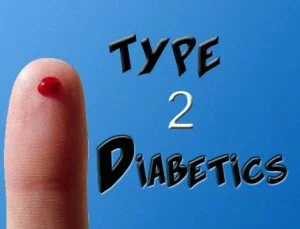Type-2 diabetes, also called non-insulin-dependent diabetes, is the most common form of diabetes which affects millions of people all over the world. In the people suffering from type-2 diabetes, the body does not properly use the insulin. When the insulin formed by the pancreas is not used as it should be, glucose does not get transported into the body cells. Thus, it leads to glucose build up in the blood instead of going into the cells.
Some problems related to high sugar levels in the blood are:
Dehydration: Enhanced levels of sugars in blood stream lead to excess glucose in the urine. When kidneys expel excess glucose through the urine, a large amount of water is lost that causes dehydration.
Diabetic Coma: In some case, when the patient’s body cannot utilize glucose as a source of energy, it will breakdown fat instead. This leads to an increase in ketones in the blood and therefore may cause ketoacidosis. This can lead to a diabetic coma.
Damage to the body: High sugar levels in the body may damage different parts of the body, including nerves and small blood vessels of the eyes, kidneys, heart and many more. It can also increase the risks of heart attack and stroke.
What causes type-2 diabetes?
It is caused by a combination of factors, including insulin resistance. Some researchers believe that genetic susceptibility and environmental factors can also trigger type-2 diabetes.
What are the symptoms of type-2 diabetes?
Its symptoms may vary from individual to individual, but some of them are
- Increased thirst
- Frequent infections of the skin or urinary tract
- Increased hunger
- Frequent urination
- Numbness or tingling of the hands or feet
- Blurred vision
- Dry mouth
- Fatigue
- Nausea and occasionally vomiting
Treatment for type-2 diabetes
The recommended treatment for this condition is diet control, weight control and physical activity. You can follow the mentioned tips to control your sugar levels:
Healthy Balanced Diet: You must go for a diet which is low in fat, rich in fiber and include starchy foods such as fruit and vegetable.
Weight Control: The individuals who are overweight can be benefitted by shedding down extra fat to reduce blood glucose level.
Physical Activity: You may go for a 30 minute brisk walk or get involved in some activities such as swimming, cycling, jogging or dancing.
Medication: Along with changes in the lifestyle, you must consult your doctor for medication. Medicines like Januvia and Actos are effective in regulating sugar levels in the blood stream.

